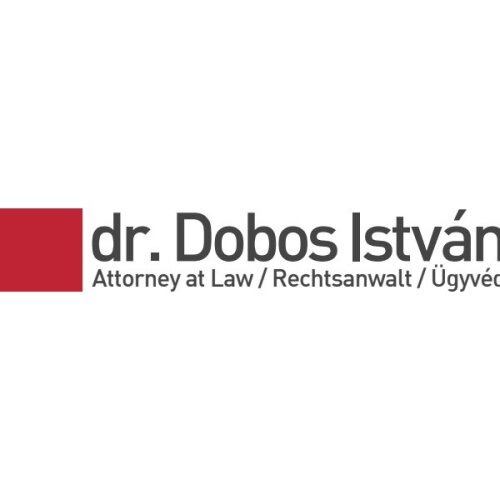Best Sanctions & Export Controls Lawyers in Budapest
Share your needs with us, get contacted by law firms.
Free. Takes 2 min.
List of the best lawyers in Budapest, Hungary
About Sanctions & Export Controls Law in Budapest, Hungary
Sanctions and export controls are crucial areas of law designed to regulate the transfer of goods, technology, and services across borders. In Budapest, Hungary, these laws ensure that the country complies with both domestic and international obligations, particularly as a member of the European Union. Sanctions can target specific countries, entities, or individuals, limiting or forbidding economic interactions with them. Export controls mainly restrict or monitor the export of certain goods and technologies, especially those with potential military uses or dual-use capabilities. Violations can result in severe consequences, including hefty fines and criminal prosecution, making compliance essential for businesses and individuals engaged in cross-border trade.
Why You May Need a Lawyer
Working with a lawyer experienced in sanctions and export controls is crucial, especially in the following situations:
- When your company exports goods, technologies, or services that may be subject to export restrictions or licensing requirements
- If you are conducting business with clients or suppliers in countries currently subject to sanctions
- In case you have been approached by authorities regarding potential breaches of export or sanctions law
- When drafting or reviewing contracts that involve cross-border transactions requiring compliance with both EU and Hungarian regulations
- If your assets have been frozen or seized due to alleged sanctions violations
- For training your staff to ensure ongoing compliance with relevant laws and regulations
- If you require advice on due diligence procedures to minimize risk of non-compliance
A lawyer can help interpret complex regulations, file the necessary licenses, draft compliance documentation, and defend you in administrative or criminal proceedings if needed.
Local Laws Overview
In Budapest, Hungary, sanctions and export controls are governed both by domestic laws and Hungary’s obligations as a member of the European Union. The most significant aspects include:
- EU Sanctions: Hungary is bound by EU-level sanctions, which apply directly and are enforced locally. These include asset freezes, trade restrictions, and bans on dealings with certain entities or individuals.
- National Implementation: Hungarian laws complement EU sanctions by dictating enforcement mechanisms and setting penalties for violations.
- Export Control Law: The export of certain goods and technologies, especially those with military or dual-use applications, requires licenses from Hungarian authorities. The list of controlled items is regularly updated in accordance with EU directives.
- Customs Regulations: The National Tax and Customs Administration (NTCA) is responsible for monitoring imports and exports at the border to ensure compliance.
- Anti-Money Laundering and Terrorist Financing Regulations: These are intertwined with sanctions, requiring reporting of suspicious transactions and freezing of assets linked to illicit activities.
Compliance with these overlapping legal frameworks is complex, and penalties for non-compliance can include fines, loss of licenses, or even imprisonment.
Frequently Asked Questions
What are EU sanctions and how do they affect businesses in Budapest?
EU sanctions are restrictive measures adopted by the European Union. Businesses in Budapest must comply with these measures, which may prohibit certain transactions with listed countries or entities. Non-compliance can lead to severe penalties.
Who enforces sanctions and export controls in Hungary?
Enforcement is primarily managed by the National Tax and Customs Administration (NTCA) with additional oversight from the Ministry of Foreign Affairs and Trade. Violations may involve law enforcement agencies if criminal conduct is suspected.
Which goods are subject to export controls in Hungary?
Goods with potential military applications, dual-use goods (civilian and military), certain chemicals, and advanced technology equipment are commonly subject to controls. The exact list is updated in line with EU legislation.
Do I need a license to export goods from Hungary?
If you are exporting goods or technologies on the controlled list, or trading with countries subject to sanctions, you must obtain an export license from the relevant Hungarian authorities.
What penalties apply for violating sanctions or export controls?
Penalties range from administrative fines to criminal charges, which may result in imprisonment. Goods may also be seized and business licenses suspended or revoked.
How can I check if a person or entity is under sanctions?
Both the EU and Hungarian government regularly publish lists of sanctioned persons and entities. Your lawyer can help interpret these lists and screen business partners.
Can I apply for an exemption from certain sanctions or export controls?
In some cases, authorities may grant exemptions or licenses for specific transactions, but strict conditions apply and applications must be thoroughly justified.
What are dual-use goods?
Dual-use goods are items, software, or technologies that can be used for both civilian and military applications. Exporting dual-use goods generally requires a license.
Are there reporting requirements for suspicious transactions?
Yes, Hungarian law requires businesses to report suspicious transactions, especially those potentially related to sanctioned persons or entities, to authorities.
How can a lawyer help with compliance?
A lawyer can audit your transactions, advise on compliance programs, file license applications, represent you in proceedings, and provide training to reduce risks.
Additional Resources
Consider consulting or contacting the following organizations and authorities for further guidance:
- National Tax and Customs Administration (NTCA) - responsible for export controls, customs oversight, and sanctions enforcement
- Ministry of Foreign Affairs and Trade of Hungary - issues guidelines and information on Hungary’s implementation of sanctions
- Hungarian Chamber of Commerce and Industry - offers resources for businesses involved in international trade
- European Commission - provides up-to-date information on EU-wide sanctions and export control regulations
- Local law firms with expertise in sanctions, export controls, and international trade law
Next Steps
If you require legal advice or assistance on sanctions and export controls in Budapest, Hungary, consider the following steps:
- Identify the specific issues or transactions where you need guidance
- Gather all relevant documentation regarding your business, transactions, and any correspondence with authorities
- Contact a local law firm or lawyer with expertise in sanctions and export controls law
- Discuss your needs, potential risks, and the services they can provide, such as compliance reviews, license applications, or representation before authorities
- Follow the lawyer’s advice regarding ongoing compliance and staff training to minimize the risk of future violations
Because of the significant risks associated with non-compliance, early legal intervention is always recommended when dealing with sanctions and export controls in Budapest, Hungary.
Lawzana helps you find the best lawyers and law firms in Budapest through a curated and pre-screened list of qualified legal professionals. Our platform offers rankings and detailed profiles of attorneys and law firms, allowing you to compare based on practice areas, including Sanctions & Export Controls, experience, and client feedback.
Each profile includes a description of the firm's areas of practice, client reviews, team members and partners, year of establishment, spoken languages, office locations, contact information, social media presence, and any published articles or resources. Most firms on our platform speak English and are experienced in both local and international legal matters.
Get a quote from top-rated law firms in Budapest, Hungary — quickly, securely, and without unnecessary hassle.
Disclaimer:
The information provided on this page is for general informational purposes only and does not constitute legal advice. While we strive to ensure the accuracy and relevance of the content, legal information may change over time, and interpretations of the law can vary. You should always consult with a qualified legal professional for advice specific to your situation.
We disclaim all liability for actions taken or not taken based on the content of this page. If you believe any information is incorrect or outdated, please contact us, and we will review and update it where appropriate.

















